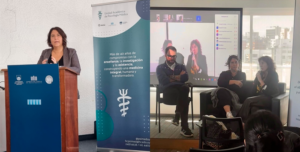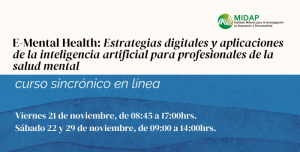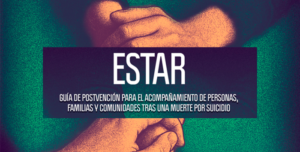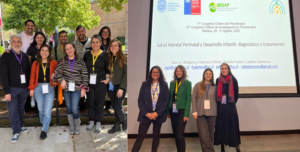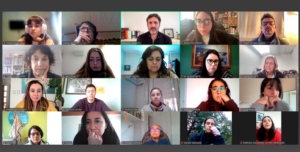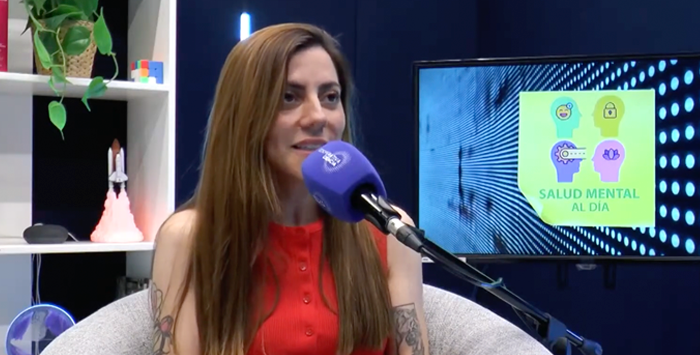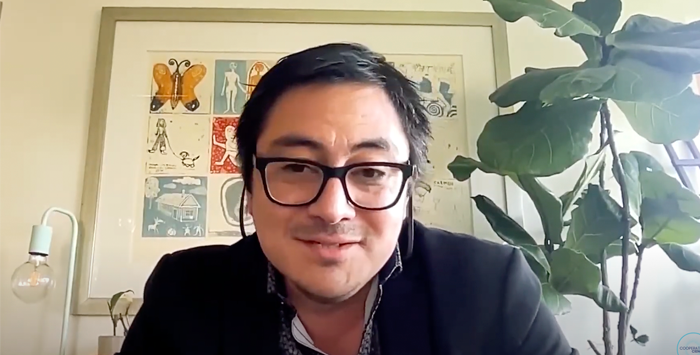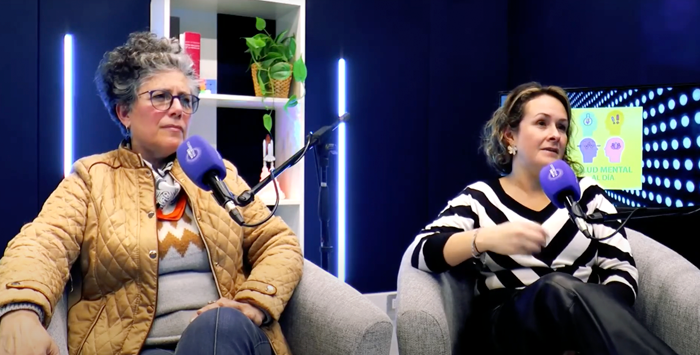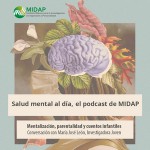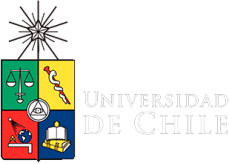Liderada por la agencia de comunicaciones Simplicity, cuenta con apoyo científico del Instituto Milenio para la Investigación en Depresión y Personalidad (MIDAP) y la Fundación Círculo Polar. Su objetivo es convocar a la sociedad para que tome conciencia de que la salud mental no es un problema individual, sino un esfuerzo conjunto que involucra a los pacientes, su entorno social, familiar y laboral. La salud mental es un problema urgente que afecta a miles de chilenos, sean quienes tienen alguna patología o aquellos que conviven y cuidan de ellos a diario. Uno de cada 3 personas reconoce haber tenido algún cuadro de este tipo, es la principal causa de licencias médicas y golpea con fuerza en niños, adolescentes y adultos jóvenes. En términos estadísticos, esto quiere decir que siempre hay alguien en nuestro entorno que vive con alguna patología, a veces con vergüenza por el estigma asociado y, a veces, en silencio. En ese contexto, los acompañantes tienen una compleja y valiosa labor de estar presentes para brindar apoyo en la recuperación, desde la empatía y el cariño, con un gran esfuerzo y compromiso personal, familiar o laboral. En ese contexto, la agencia de comunicaciones Simplicity lanzó la iniciativa “Solamente Unidos”, con el objetivo de convocar a la toma de conciencia sobre la salud mental, enfatizando que no es un problema individual, sino que para poder enfrentarla hay que hacerlo entre todos. La iniciativa cuenta con el apoyo científico del Instituto Milenio para Ia Investigación en Depresión y Personalidad (MIDAP) y testimonios aportados por personas vinculadas a la Fundación Círculo Polar, que agrupa a personas con experiencias vividas en salud mental y sus familiares. “Solamente Unidos es una invitación a abrir la mirada, a romper el silencio y movilizar a la sociedad en torno a una problemática extendida y sensible como es la salud mental, pero desde una óptica positiva, esperanzadora y real, donde las propias personas afectadas tienen una voz”, destaca Paula Lacámara, fundadora y directora general de comunicaciones de Simplicity. ¿Cómo participar? Solamente Unidos propone resaltar y valorar a quienes han estado presentes en esos momentos difíciles: familiares, amistades, equipos médicos, compañeros de trabajo o jefaturas. A través del sitio web www.solamenteunidos.cl cualquier persona puede compartir su historia para agradecer a quienes estuvieron a su lado en un momento difícil. La invitación es abierta a todos los que quieran sumarse. Para hacerlo basta ingresar a la página web y luego subir un testimonio en cualquiera de los formatos disponibles: texto, audio o video, con nombre real o de forma anónima, usando algún alias. También se podrá difundir en redes sociales con el hashtag #SolamenteUnidos, para así amplificar el mensaje. Todos los contenidos serán moderados para asegurar que mantengan un tono respetuoso, constructivo y centrado en el reconocimiento, evitando expresiones ofensivas o mensajes que vulneren a otras personas. “Queremos que este espacio sea seguro y empático. Los testimonios deben enfocarse en el valor del acompañamiento y la gratitud. Mientras más historias se compartan, más unidos estaremos. Cada relato es un puente que nos acerca. Tu historia puede cambiar una vida, incluso salvarla”, explica Paula Lacámara. Experiencia Solamente Unidos es una iniciativa con un enfoque innovador a nivel nacional e internacional, ya que se centra en la importancia que tiene el rol de los acompañantes en el proceso, con una mirada positiva y propositiva. Eduardo Bertrán, fundador y director creativo general de Simplicity, explica que esta forma de abordar el tema surgió tras revisar una gran cantidad de campañas alrededor del mundo “que, en su gran mayoría, tenían un enfoque triste, oscuro y centradas en una problemática particular, como el suicidio. Solamente Unidos, en cambio, habla de la complejidad del tema, al existir un gran espectro de enfermedades muy distintas entre sí, y plantea que la única manera de salir adelante es hacerlo entre todos, donde los pacientes, la comunidad médica y el entorno participen siendo parte de la solución, acompañando en ese momento difícil, con presencia, empatía y muchas veces dando un buen consejo o derivando a un especialista”. Sobre la importancia que tienen los acompañantes -tratantes, familia, amigos, compañeros de trabajo, entre otros- la presidenta de la Fundación Círculo Polar, Flavia Gal, señala que se trata de personas que “muchas veces quieren ayudar de una u otra manera, pero sienten la impotencia de no contar con las herramientas adecuadas, las palabras precisas o simplemente la forma de hacer sentir bien a quien tiene una enfermedad mental que no está solo, mucho menos “loco” o un ser extraño que se puede apartar. Por eso, Solamente Unidos muestra con testimonios reales la relevancia que tenemos todos y cada uno de los que formamos parte de la sociedad”. Respecto del mensaje al que apunta, el director del MIDAP, Alex Behn, sostiene que “esta es una iniciativa distinta respecto de otras que
